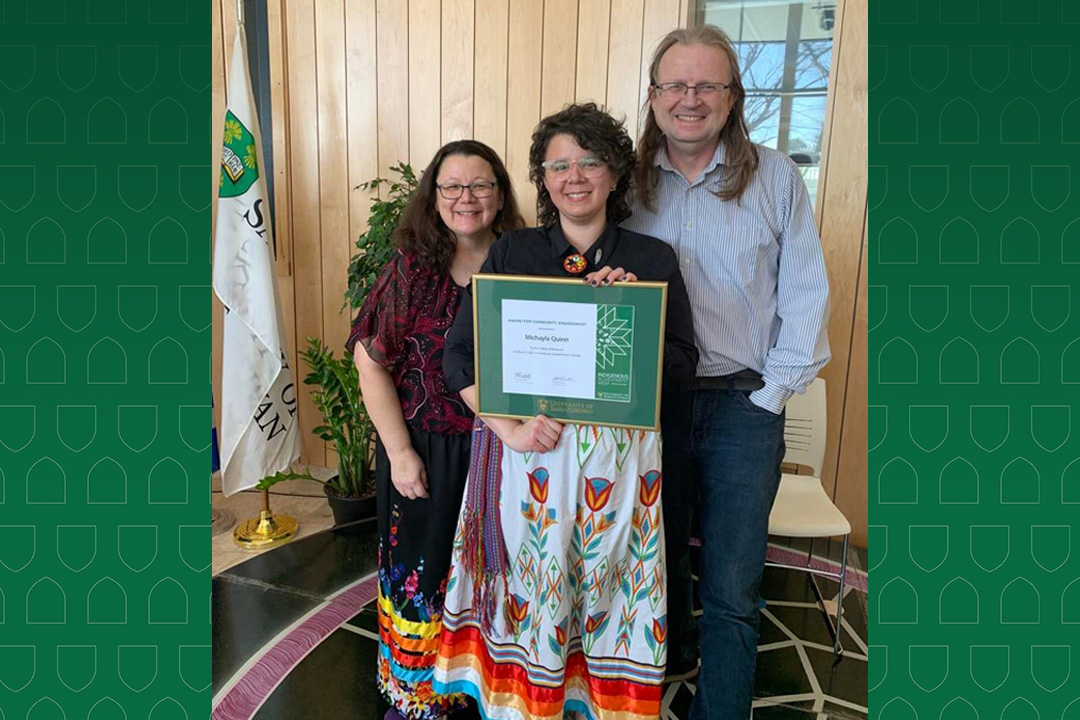
USask graduate student passionate about community engagement
A graduate student at the University of Saskatchewan's College of Medicine has been recognized for community engagement at the Indigenous Student Achievement Awards Ceremony.
By AMANDA WORONIUKMichayla Quinn is a Métis student in their first year of a master's program in the Department of Community Health and Epidemiology with a focus on Indigenous food sovereignty. They received the community engagement award at the awards ceremony on March 9. The event is part of the university’s Indigenous Achievement Week, which celebrates Métis, First Nations and Inuit students, staff, faculty and alumni’s successes and contributions.
Michayla, who uses they/them pronouns, is actively involved in advocating for change in their community. In various roles at CHEP Good Food, they connected with community-based organizations in Saskatoon and pivoted during the pandemic when existing programs were suspended. Michayla has also served as a board member for both Pride Saskatoon and Girls Rock Saskatoon.
We asked Michayla a few questions about their studies and what inspires them.
Why did you decide to pursue graduate studies in the Department of Community Health and Epidemiology?
My work with communities throughout the pandemic inspired me to work towards making meaningful change. I am passionate about food security and community research – CH&E gives me the chance to grow my skills and work in a field I am passionate about.
You received the award for community engagement. Can you talk about one person you think embodies community engagement and what makes them so?
My mom is my inspiration! My mom has always taught me to be selfless, hardworking and passionate about helping others. She took me to my first protest, a rally to support the building of Station 20 West – which eventually became where I worked my first non-profit job. She has achieved so much in her own work too and has inspired me to connect with my roots.
Your studies focus on Indigenous food sovereignty. Why is it important for you to be an advocate in this area?
As a mixed Indigenous person raised in Saskatoon and a food security advocate, I think it’s really important for Indigenous people living in urban centres to have access to food that is affordable, safe, healthy, and culturally significant. Allowing all of us to connect with the knowledge of our ancestors in a meaningful, accessible way is a big step towards reconciliation and decolonization – and I think food is a great way to do that.
What advice would you give to Indigenous students interested in pursuing graduate studies?
Not only are you capable of finding success in academia, you are uniquely gifted with an opportunity to change it for the better by bringing your whole self to the USask community – share your knowledge, talk about your culture, be proud of who you are and where you come from. It can be difficult, but being authentically Indigenous, however that looks like for you, makes us all better for it.
Article re-posted on .
View original article.
